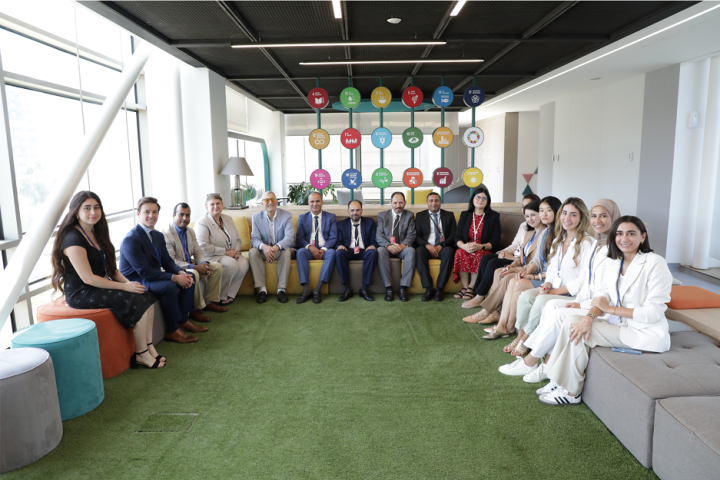Two important activities will be held at the down town Beirut-based ESCWA on Friday, the 25th of October 2013: the Water, Food and Energy Nexus Conference co-organized with the Rafik Hariri Foundation, and the launch of the Inventory of Shared Water Resources in Western Asia organized on the sideline of the United Nations Day (24 October) celebrations. The Conference will open at 9:30 am with the statements of Roula Majdalani, Director of the ESCWA Sustainable Development and Productivity Division (SDPD); Salwa Siniora Baassiri, Director-General of the Rafik Hariri Foundation; Nadim Khoury, Deputy Executive Secretary of ESCWA. Dominic Waughray, Senior Director and Head of Environment and Sustainable Initiatives of the World Economic Forum, will give a keynote statement. The Water, Food and Energy Nexus Conference is intended to serve as a platform to discuss an integrated approach to the nexus. The objective is to devise a set of initiatives to design policies and develop strategic plans for the management of resources towards sustainable development. Recent scientific studies have indicated that the world is witnessing increasing environmental deterioration; unpredictable climate changes; galloping population growth; and severe economic crises. Together, these factors carry a real threat to human safety, social security and political stability. They also cause unprecedented pressures on natural resources, mainly water, food and energy, which renders an innovative approach in handling and managing these resources necessary. Shared Water Resources in the Region Following the opening of the Food and Energy Nexus Conference, the Inventory of Shared Water Resources in Western Asia will be launched at 10:30 am.
In order to shed light on the precious natural resources and promote dialogue between countries sharing water resources, ESCWA and the German Federal Institute for Geosciences and Natural Resources (BGR) have prepared the Inventory of Shared Water Resources in Western Asia. It is the first effort led by the United Nations to comprehensively assess the state of transboundary surface and groundwater resources in the region. This very informative 600-page publication includes 60 new maps of shared water resources in the region. In this regard, the Inventory constitutes a sound scientific basis of information and cooperation in an era of growing demand and dwindling water supply. Speakers in the launching ceremony will be ESCWA Deputy Executive Secretary Nadim Khoury; Director of SDPD Roula Majdalani; former ESCWA-BGR Project Coordinator Andreas Renck; Head of Palestinian Water Authority Minister Shaddad Atilli; Director –General of Lebanese Energy and Water Ministry and Member of ESCWA Committee on Water Resources Fadi Comair; and Head of Cooperation and Economic Departments at the Federal German Republic Embassy in Beirut Hanan Abdul Rida. It is worth noting that more than half of freshwater resources in the ESCWA region are transboundary water resources, which presents an opportunity for cooperation and for conflict among countries. With increasing water scarcity, recurrent droughts, on-going crises and population displacement, water security remains elusive and a recurrent source of conflict in this politically-sensible part of the world. One of the salient examples is the well-known Jordan River Basin, whereby Israeli occupation continues to hamper the ability of the Palestinian people to exercise full sovereignty over their water resources, and to create tensions at the borders with Lebanon and Syria. The sound management of shared water resources is therefore a core component of water security and sustainable development in the region. For further information on the Inventory: www.waterinventory.org For inquiries: waterinventory@un.org The ESCWA Communication and Information Unit (ECIU) invites media institutions to take part in both activities and submit the names of their delegates by Thursday 24 October 2013 on the following numbers: 76-046402 or 70-993144. This arrangement is required in order to facilitate the access of media representatives to the UN House.



